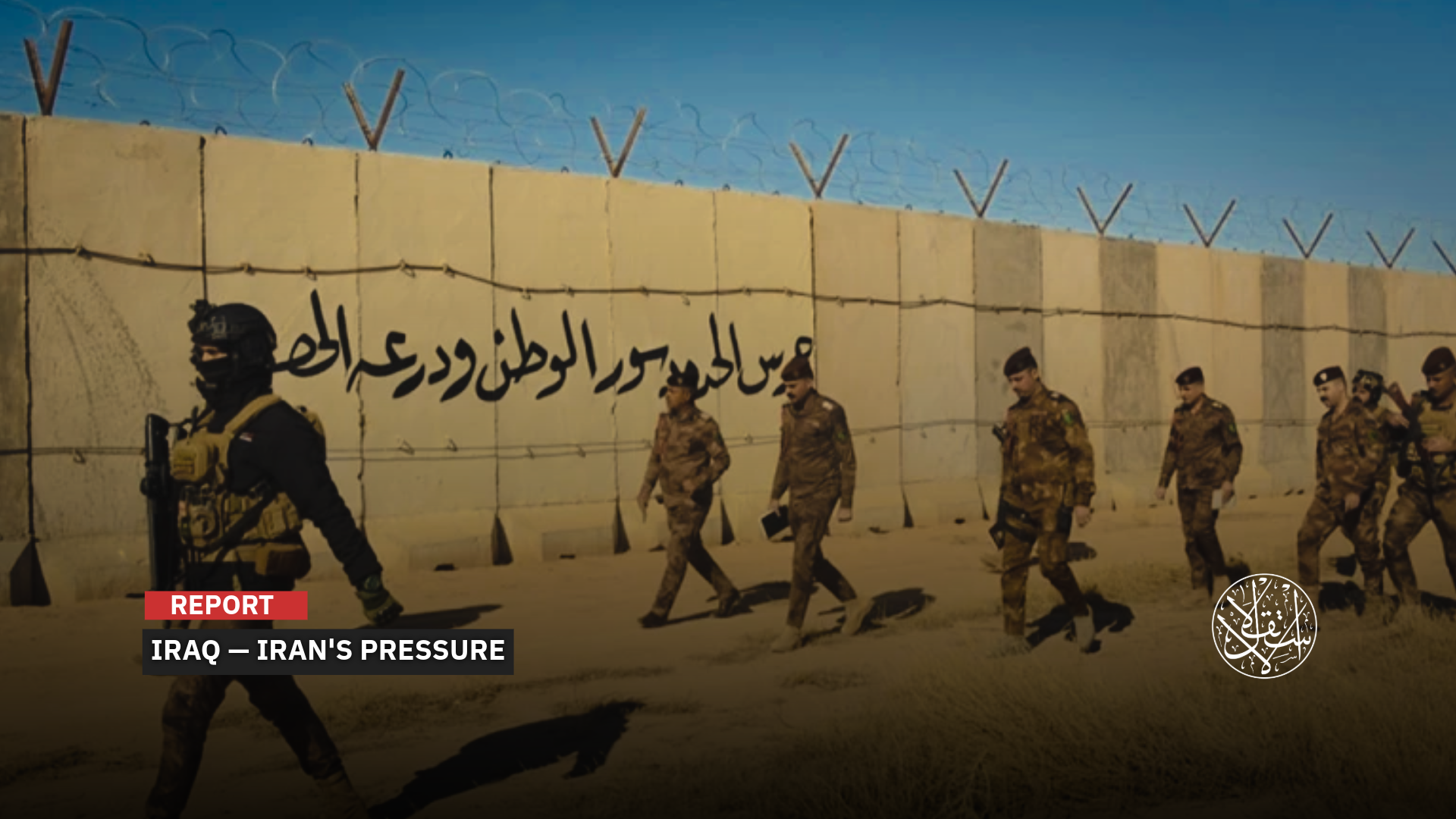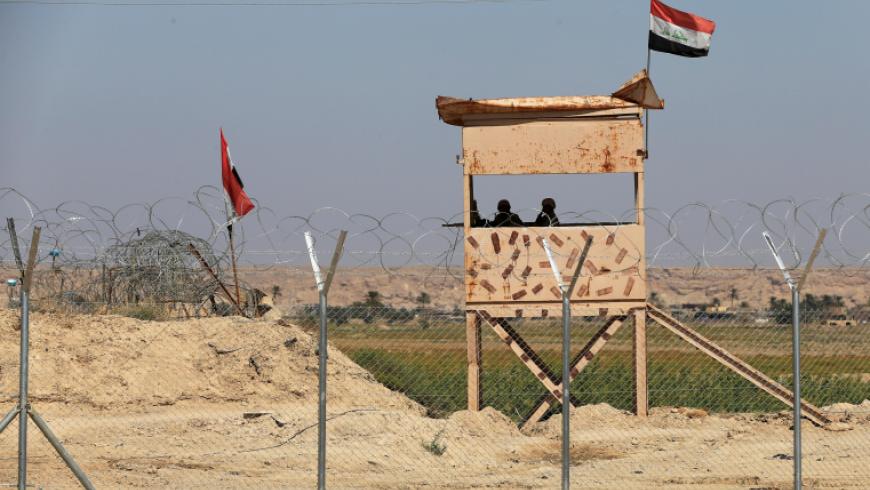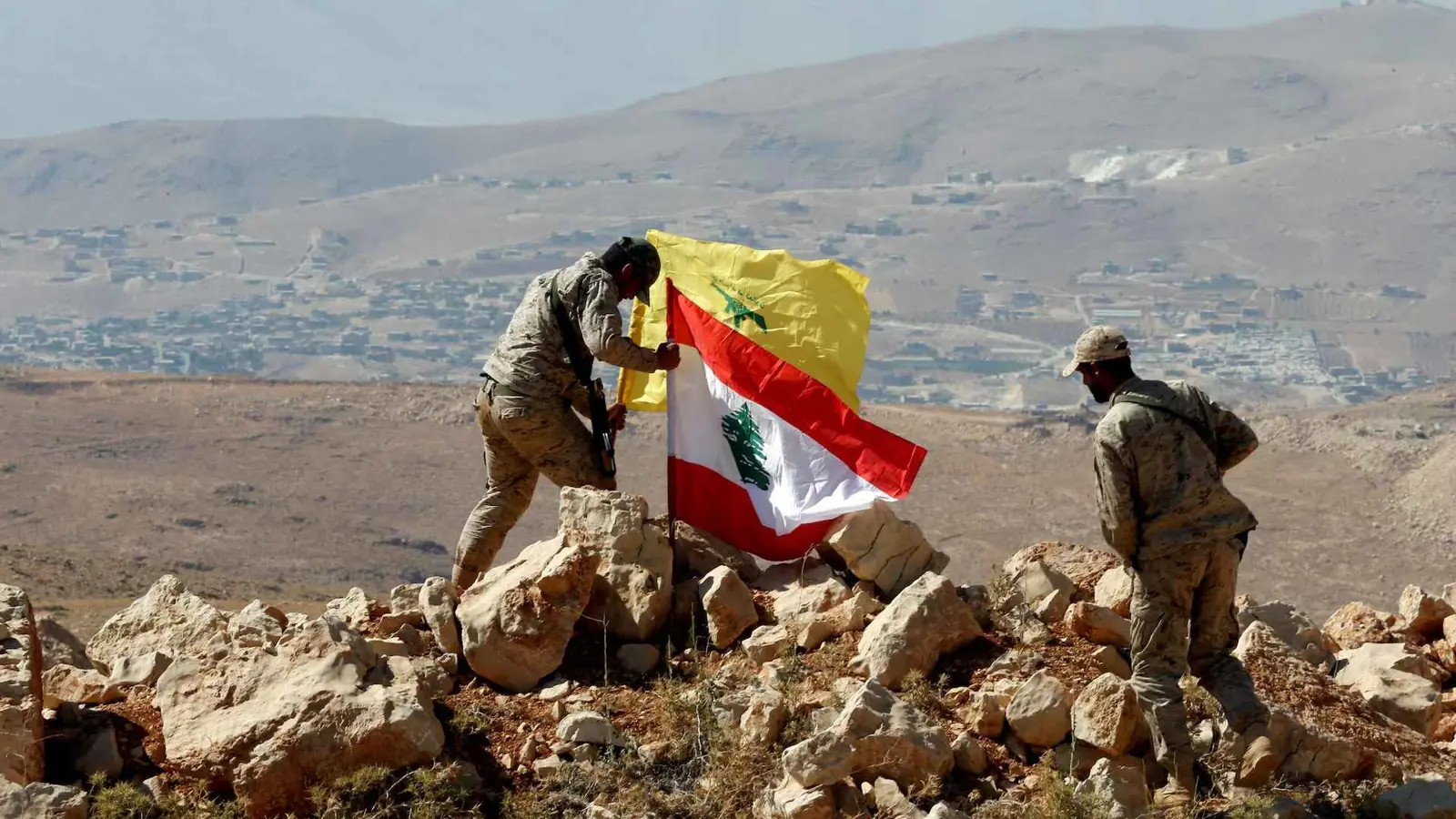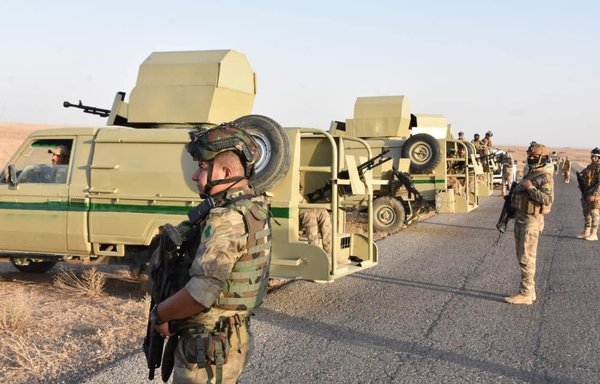Through Iraq: Will Iran Move Money to Hezbollah Under Today’s Conditions?

“That area is closely monitored by the U.S.”
Baghdad’s ability to resist Iranian pressure is under scrutiny after reports that a senior Iraqi official rejected a request to channel money to Hezbollah via Syria, leaving open the question of whether the cash could yet reach Lebanon.
The U.S. Department of State estimated in 2022 that Tehran provides Hezbollah with as much as $700 million annually. In 2016, Hezbollah’s leader at the time, Hassan Nasrallah, acknowledged that Iran remains its primary source of financing.

Request for Special Access
On September 9, 2025, the Saudi daily Aawsat News reported that a senior Iraqi official had received a message from Iran in late August seeking unusual accommodations at a border crossing in western Iraq. The request, according to the paper, was to allow the transfer of large sums of money to Hezbollah in Lebanon through Syrian territory.
The official, who was not named, told the paper he declined to act on the message, citing political and security risks. He said the Iranian side framed the request as part of broader plans to rebuild the military capacity of the so-called “axis of resistance” after the Israeli war on Lebanon.
The letter specifically sought extraordinary measures at the al-Qa’im crossing on the Iraqi-Syrian frontier to move what the official described as “very large” amounts of cash. When he raised concerns about how the money could be moved safely inside Syria, he was told by Iranian contacts that Tehran relies on smuggling networks to ensure delivery to Damascus and that Baghdad should not concern itself with what happens beyond the crossing.
According to the official, the Iraqi government refused outright. He pointed to the heavy American surveillance around the crossing, which makes any unusual movement risky for Iraqi institutions. He also speculated that Iran’s insistence on using an official route may have been intended to shield the shipments from seizure and to guarantee that large amounts could pass at once.
Before the fall of Bashar al-Assad’s regime in December 2024, the al-Qa’im crossing and surrounding unofficial routes were controlled by Iran-backed Shiite militias, most prominently Kata’ib Hezbollah, which has long been accused of smuggling weapons and narcotics. Those groups remain present as units of the Popular Mobilization Forces, but their influence has waned. On the Syrian side, the territory is now held by border guards and units of the new army’s 86th Division.
During a visit to Baghdad on September 3, Iranian Deputy Foreign Minister Saeed Khatibzadeh pressed Iraq’s foreign minister, Fuad Hussein, to “support the resistance” and resist what he called regional “redrawing projects.” Days earlier, Ali Larijani, secretary of Iran’s Supreme National Security Council, told IRNA that Tehran’s strategy remains unchanged: “The war has paused, but another war has already begun.”

Rebuilding Hezbollah
On the question of whether Baghdad can resist Tehran’s requests, Iraqi affairs analyst Iyad Thabet told Al-Estiklal that it is “certainly the right decision to refuse Iranian requests at this time, especially since the area poses a threat to Iraq; it is heavily monitored by the United States through drones, making it extremely dangerous.”
Thabet dismissed the idea that the report was simply a diversion to shield Iraq from accusations of collaboration with Iran in the eyes of Washington or the Israeli Occupation. Instead, he argued that Tehran’s priority is to rebuild Hezbollah’s strength. If cash shipments crossed from Iraq into Syria, he said, they could reach Lebanon with relative ease because Hezbollah maintains a robust logistics network there. Syria’s battered economy has only deepened the group’s ability to recruit smugglers and remnants of the Assad-era security apparatus.
“Syria’s new government has yet to assert full control over the country. Large areas remain in the hands of the Syrian Democratic Forces or foreign militaries, leaving Hezbollah and Iran with ample space and local partners to maneuver,” he said.
Baghdad, for its part, has remained silent on the reported Iranian request. The ruling Shiite Coordination Framework, however, flatly denied that such a message ever reached Iraqi officials.
In remarks to Iraq’s Aljeebal news agency on September 6, 2025, Coordination Framework member Issam al-Kuraity said, “We categorically deny reports that the [Shiite Coordination] Framework or any of its components received messages from Iran regarding financial or logistical support to Hezbollah.”
He called the claims “fabricated media reports” aimed at smearing the bloc and dragging it into regional disputes. Iraq’s governing coalition, he said, is focused on strengthening state institutions, preserving internal stability and pursuing its domestic agenda, not serving outside agendas.

Earlier Attempts
The collapse of Bashar al-Assad’s regime in Syria broke apart the so-called Shiite Crescent linking Iran to Lebanon through Iraq and Syria, severing Hezbollah’s most reliable pipeline for money and weapons after a series of Israeli Occupation attacks.
In the aftermath, Tehran sought to move funds directly to Hezbollah by air. Several Iranian planes were dispatched toward Beirut’s Rafik Hariri International Airport, but Lebanese authorities refused them permission to land after one aircraft declined inspection under pressure from Washington.
Local media later reported that an Iranian diplomat was barred from entering Lebanon when he refused to allow his diplomatic bag to pass through airport scanners. At the same time, Lebanese officials were in urgent talks with Tehran over another incoming Mahan Air flight that was suspected of carrying cash for Hezbollah.
According to LBCI, the diplomat had arrived on the Iranian carrier and was turned back after rejecting standard security checks. On the same day, the Future TV network quoted unnamed security sources as saying the airport’s security service, after consulting senior officials, decided to block the release of any suspicious cargo linked to the flight.
The station reported that Lebanese officials warned Iran that if the aircraft landed and money was discovered on board, the shipment would be seized as illicit funds. If Tehran refused inspection, the flight would be denied entry altogether. To prevent interference by Hezbollah operatives, security forces even designated a remote airstrip for the plane in case it attempted to land.
The standoff spilled into the streets. Dozens of Hezbollah supporters demonstrated outside Rafik Hariri International Airport, protesting what they called humiliating inspections. Footage broadcast by the group’s own al-Manar channel showed the crowds gathering on January 3.
Lebanon’s then-interior minister Bassam Mawlawi confirmed that the Iranian aircraft was searched in line with airport regulations. Lawmaker Nazih Matta, a member of the Lebanese Forces party led by Samir Geagea, praised the move as part of Beirut’s broader effort to reassert sovereignty over its borders and critical infrastructure. He accused Tehran of trying to “trample on Lebanon’s sovereignty” through Hezbollah and said Iranian flights had long entered the country with weapons and cash unchecked.
Sources
- Coordination Framework Reveals Truth About Iranian Message on Iraq’s Support for Hezbollah and Warns of Threats to Security [Arabic]
- Tehran Seeks New Channels to Funnel Money to Hezbollah [Arabic]
- After the War and Assad’s Fall: How Hezbollah’s Political Influence Is Waning in Lebanon [Arabic]
- After Iranian Plane Was Barred from Landing, Hezbollah Supporters Block Road to Beirut Airport [Arabic]










